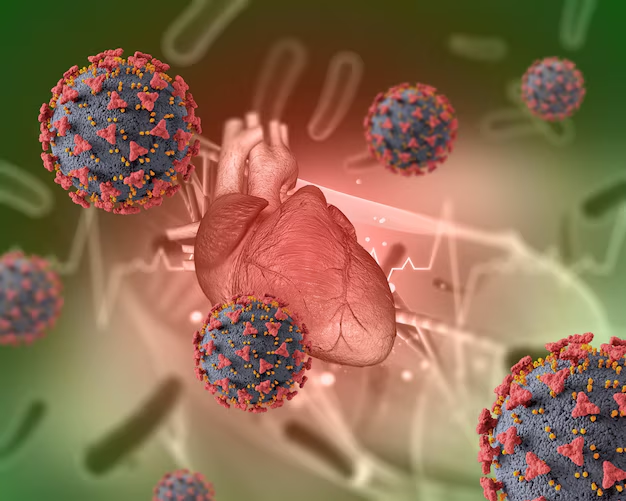Is Your Heartbeat Irregular? A Guide to Heart Rhythm Disorders

Have you ever felt your heart skip a beat, race, or flutter? While often harmless, these sensations can sometimes signal a heart rhythm disorder, or arrhythmia.
What Are Heart Rhythm Disorders (Arrhythmias)?
Your heart is a powerful muscle that beats in a steady rhythm to pump blood throughout your body. Normally, your heart beats between 60 to 100 times per minute at rest. But when something disrupts this rhythm, it’s called an arrhythmia. This can indicate that your heart beats too quickly (tachycardia), too slowly (bradycardia), or irregularly.
Arrhythmias can occur in either the upper or lower chambers of the heart (atria and ventricles). Some are mild and barely noticeable, while others can be life-threatening if left untreated.
Common Types of Arrhythmias
Here are a few of the most common types of heart rhythm disorders:
- Atrial Fibrillation (AFib): The most common type, where the heart’s upper chambers beat irregularly and often too fast.
- Ventricular Tachycardia: A rapid heartbeat that starts in the heart’s lower chambers, which can be dangerous.
- Bradycardia: A slower-than-normal heart rate, often caused by issues with the heart’s electrical system.
- Premature Contractions: Extra or skipped beats that cause a fluttering or pounding sensation in the chest.
What Causes Arrhythmias?
A number of causes can contribute to arrhythmias, including:
- Heart Disease: Conditions like coronary artery disease or heart failure can disrupt the heart’s electrical system.
- High Blood Pressure: Puts extra strain on the heart, increasing the risk of irregular rhythms.
- Electrolyte Imbalances: Low or high levels of potassium, calcium, or magnesium can affect heart function.
- Lifestyle Factors: Stress, smoking, excessive alcohol or caffeine consumption, and drug use can all cause arrhythmia.
- Genetics: Some people are born with a higher risk of developing heart rhythm disorders.
Symptoms to Watch For
Not everyone with an arrhythmia experiences symptoms, but when they do, they might include:
- Palpitations: The sensation of your heart speeding, fluttering, or skipping beats.
- Dizziness or lightheadedness is caused by a reduction in blood supply to the brain.
- Chest Pain or Discomfort: Commonly reported as pressure or tightness.
- Shortness of Breath: Difficulty breathing, particularly during exercise.
- Fainting (Syncope): A sudden loss of consciousness due to irregular heartbeats.
If you experience any of these symptoms, especially chest pain or fainting, seek medical attention immediately.
How Are Arrhythmias Diagnosed?
If your doctor suspects an arrhythmia, they may recommend one or more of the following tests:
- Electrocardiogram (ECG or EKG): Records the electrical activity of your heart.
- Holter Monitor: A portable device worn for 24-48 hours to track your heart’s rhythm.
- Event Recorder: Similar to a Holter monitor but used for longer periods to capture sporadic symptoms.
- Echocardiogram creates images of the anatomy and function of your heart using sound waves.
- Stress Test: Monitors your heart while you exercise to see how it responds to physical activity.
Treatment Options for Arrhythmias
The good news is that most arrhythmias can be managed effectively with the right treatment. Options include:
- Medications: Beta-blockers, calcium channel blockers, and antiarrhythmic medicines can all help control your heart rhythm.
- Lifestyle Changes: Reducing stress, quitting smoking, limiting alcohol and caffeine, and eating a heart-healthy diet can make a big difference.
- Medical Procedures:
- Cardioversion: A controlled electric shock to restore a normal rhythm.
- Ablation: A procedure that uses heat or cold to destroy small areas of heart tissue causing the irregular rhythm.
- Pacemaker or Implantable Cardioverter-Defibrillator (ICD): Devices implanted under the skin to regulate your heartbeat.
Can Arrhythmias Be Prevented?
While not all arrhythmias are preventable, you can lower your risk by:
- Maintaining a Healthy Lifestyle: Exercise regularly, eat a balanced diet, and avoid smoking.
- Managing Stress: Practice relaxation techniques like yoga, meditation, or deep breathing.
- Monitoring Your Health: Keep an eye on your blood pressure, cholesterol, and blood sugar levels.
- Regular Check-Ups: Visit your doctor for routine screenings, especially if you have a family history of heart disease.
When to See a Doctor
If you notice persistent or severe symptoms like chest pain, fainting, or shortness of breath, don’t wait see a doctor Dr.Deep Chandh Raja right away.As a cardiologist, Arrhythmias can be complex, but with the right care and lifestyle changes, most people can lead healthy, active lives. Even if your symptoms seem mild, it’s always better to get checked out. Early diagnosis and treatment can help you avoid complications and improve your quality of life.
Final Thoughts
An irregular heartbeat can be scary, but understanding what’s happening in your body is the first step toward managing it. Whether you’re experiencing occasional palpitations or have been diagnosed with a heart rhythm disorder, know that you’re not alone. With the right care and lifestyle changes, most people with arrhythmias can lead healthy, active lives.
If you have concerns about your heart health, don’t hesitate to reach out to a healthcare professional. Your heart is your most important organ; take good care of it!





